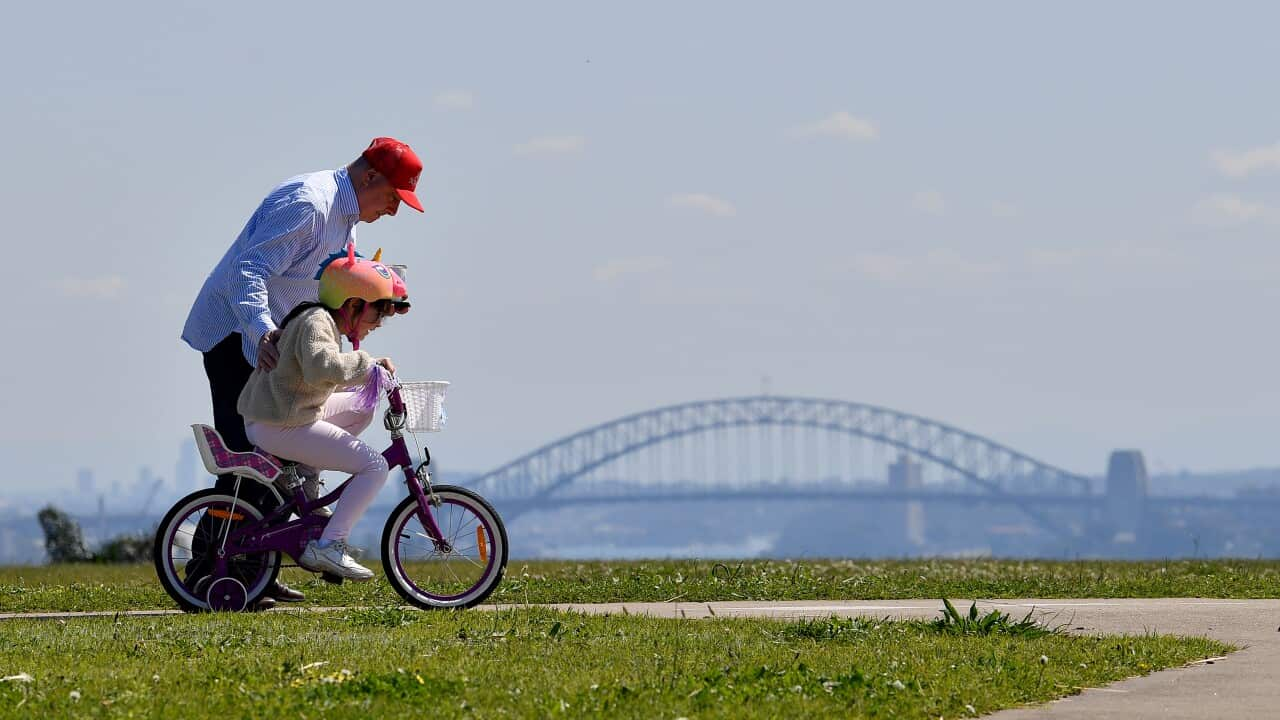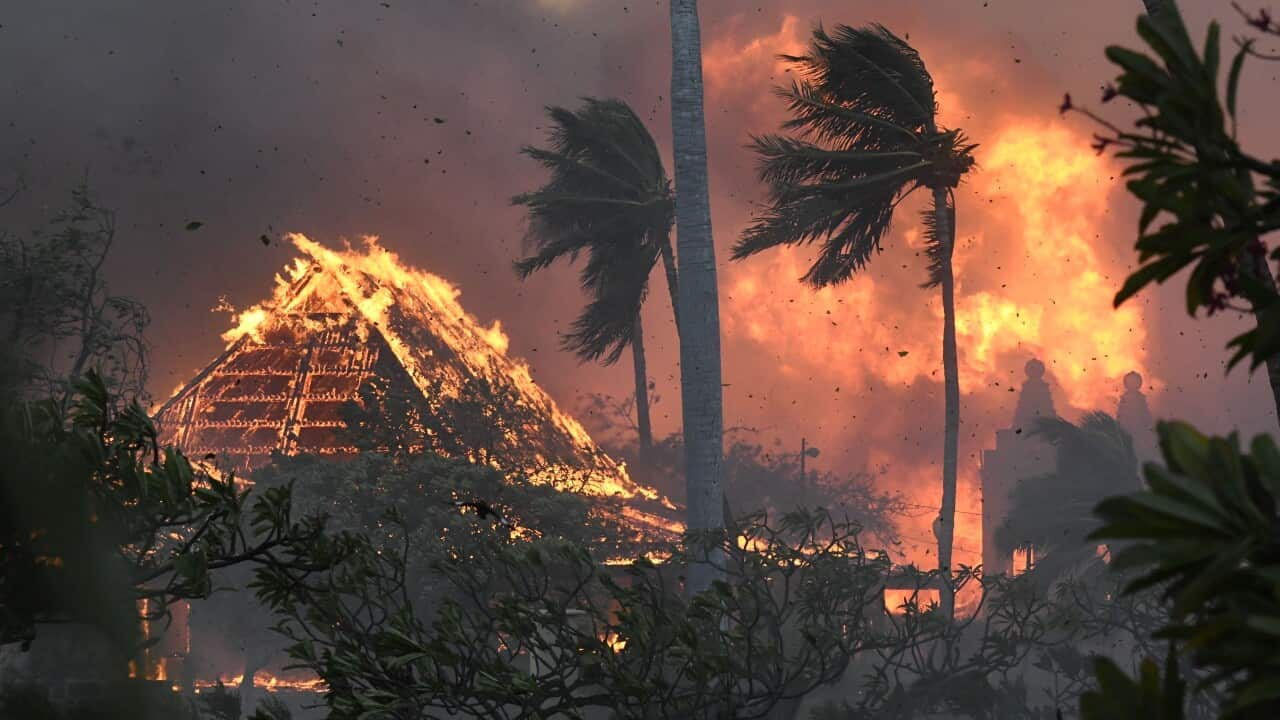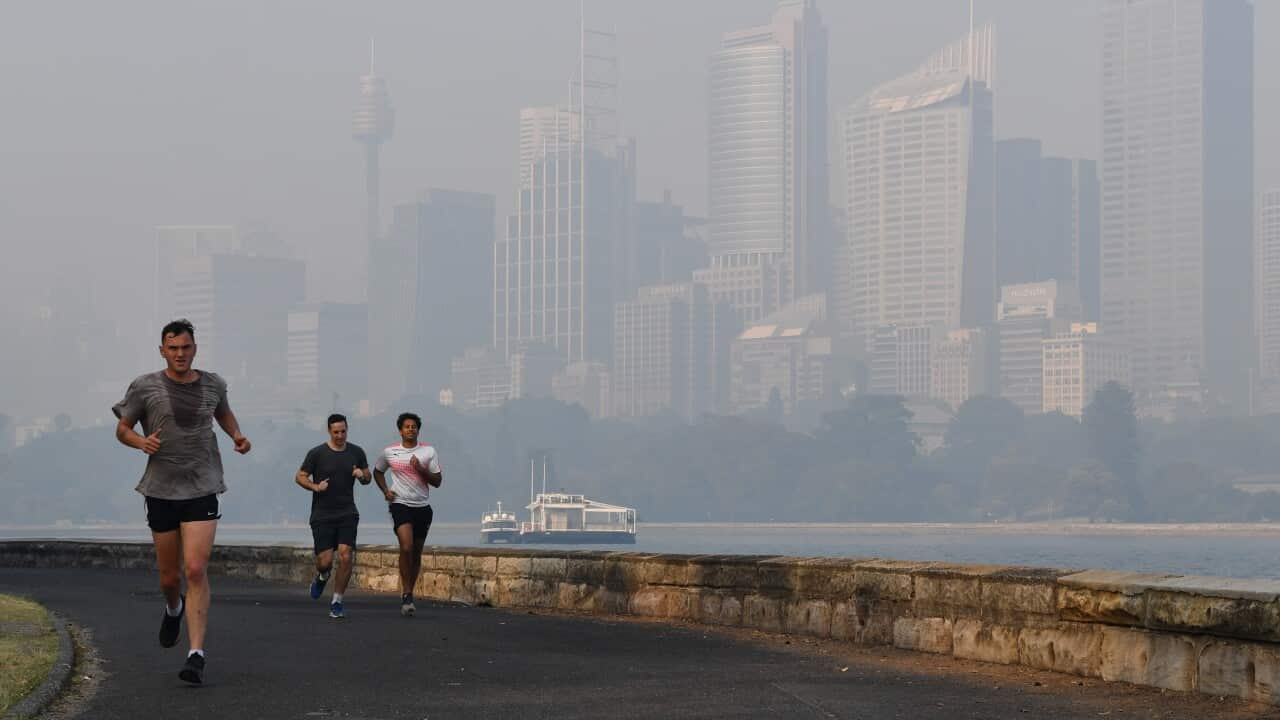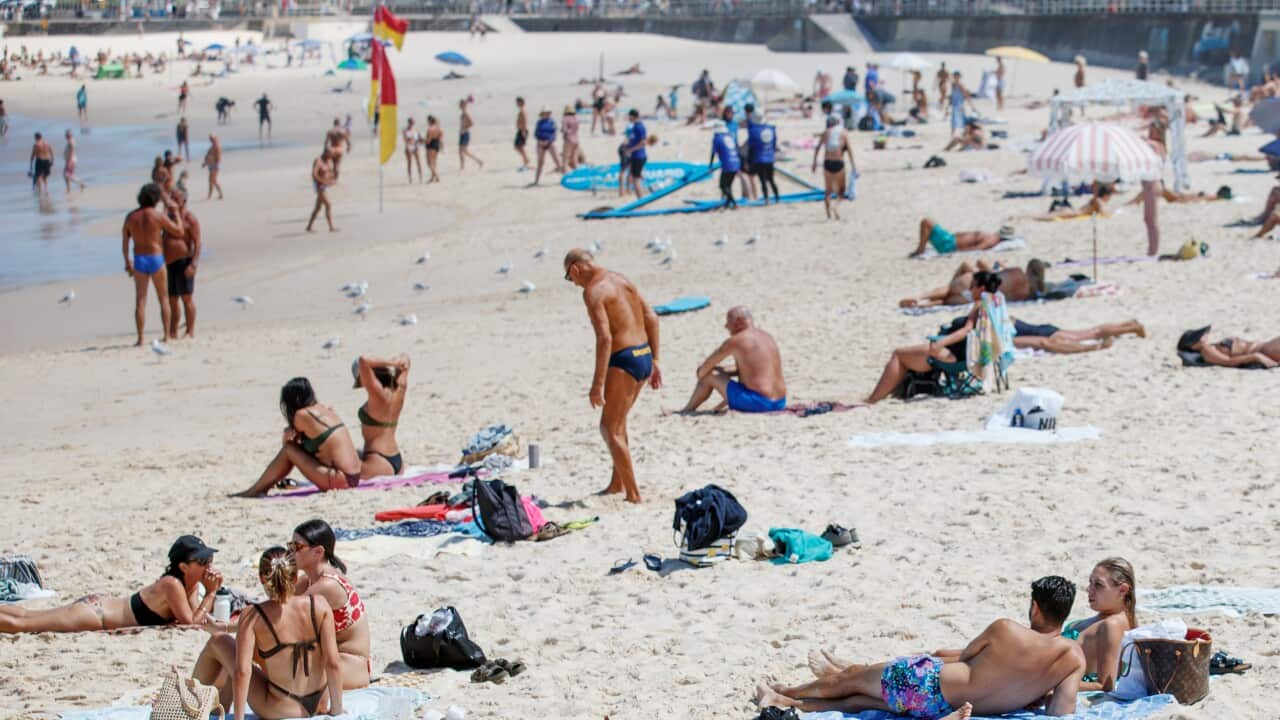Key Points
- Air quality in parts of Sydney plunged to 'extremely poor' levels on Tuesday.
- The smoke haze was caused by bushfire hazard reduction burns by the NSW Rural Fire Service on the weekend.
- The RFS has warned residents to expect more smoke, with hazard reduction burns to continue well into November.
A blanket of smoke plunged air quality in parts of Sydney to 'extremely poor' levels on Tuesday morning, prompting questions around the safety of everyday activities like exercise.
In the lead-up to summer, firefighters use a mixture of hazard reduction methods including controlled burns to remove vegetation near properties and reduce the threat of bushfires.
The NSW Rural Fire Service (RFS) has warned residents to expect more smoke throughout the week, and hazard reduction burning will continue well into November.
Environmental epidemiologist and University of NSW professor Bin Jalaludin told SBS News the health effects of smoke can extend beyond our lungs and have a range of other impacts on the body.
What is in smoke?
Jalaludin, who is also chief investigator with the Centre for Air Pollution, Energy and Health Policy Research, warned that smoke can be "fairly toxic".
"Smoke is a fairly complex mixture. It's obviously got fine particles and coarse particles and also various gases," Jalaludin said.
"The composition of fine particles are just mainly carbon, but there may also be other chemicals attached to fine particles."
Can smoke from hazard reduction burns cause health issues?
"The gases and the fine particles, when we breathe them in, it goes into our lungs and into the blood system. So that's where most of the health effects take place," Jalaludin said.
"It has effects on the respiratory system, on the cardiovascular system, the heart, the lungs."
He also advised that as further studies emerge about the impact of smoke, such as standard city pollution, outside of bushfire smoke, they have found other body systems are affected too.
"There are impacts on cognition, dementia, and birth outcomes. So babies are born a little bit early or born with lower birth weight. So there's a whole range of impacts," he said.
How does bushfire smoke differ from normal air pollution?
Jalaludin said it's not yet conclusive whether burning of vegetation during hazard prevention burning releases more toxins than usual smoke or air pollution.
"The composition is a bit different and it may be more toxic … but it’s definitely not good for you," he said.
The impact on people's health is tied to both how poor the air quality is as well as how long an individual is exposed, whether it be several hours or weeks.
So is it safe to exercise outdoors?
The RFS advises people to "reduce outdoor activities" if smoke levels are high. Jalaludin said this is especially crucial for high-intensity exercises like running, during which you inhale a lot of air.
"I would generally say that if you can do something inside, I would prefer them to be inside or go to a gym where the air will be cleaner," Jalaludin said.
While he acknowledged there are instances where people can't avoid walking outside to commute or catch public transport, it was best practice to "avoid the smoke as much as you can".
Will the smoke harm my children?
Jalaludin said children are more vulnerable to smoke effects and air pollution because they often inhale more air by running around.
He said parents should consider skipping soccer or netball training, depending on how bad the smoke levels are, but knows in some instances clubs are cancelling practice.
"These are difficult decisions to make and there's no obvious guideline to say when it reaches this level, you should stop," he said.
"If it's hazy and you can smell the smoke and the visibility is not great, then I think we should stop it."
What can I do to minimise exposure to smoke?
The NSW RFS website urges residents affected by smoke to keep doors and windows shut, remove washing from clothes lines and keep medicine for asthma and other lung conditions handy.
As well as the above, Jalaludin reminded Sydneysiders to use N95 masks or home air purifiers with a HEPA filter.
"Cloth masks are not particularly effective because there are gaps between your face and where the mask sits on your nose, so it has to be an N95 or a P2 mask which fits much, much better."












